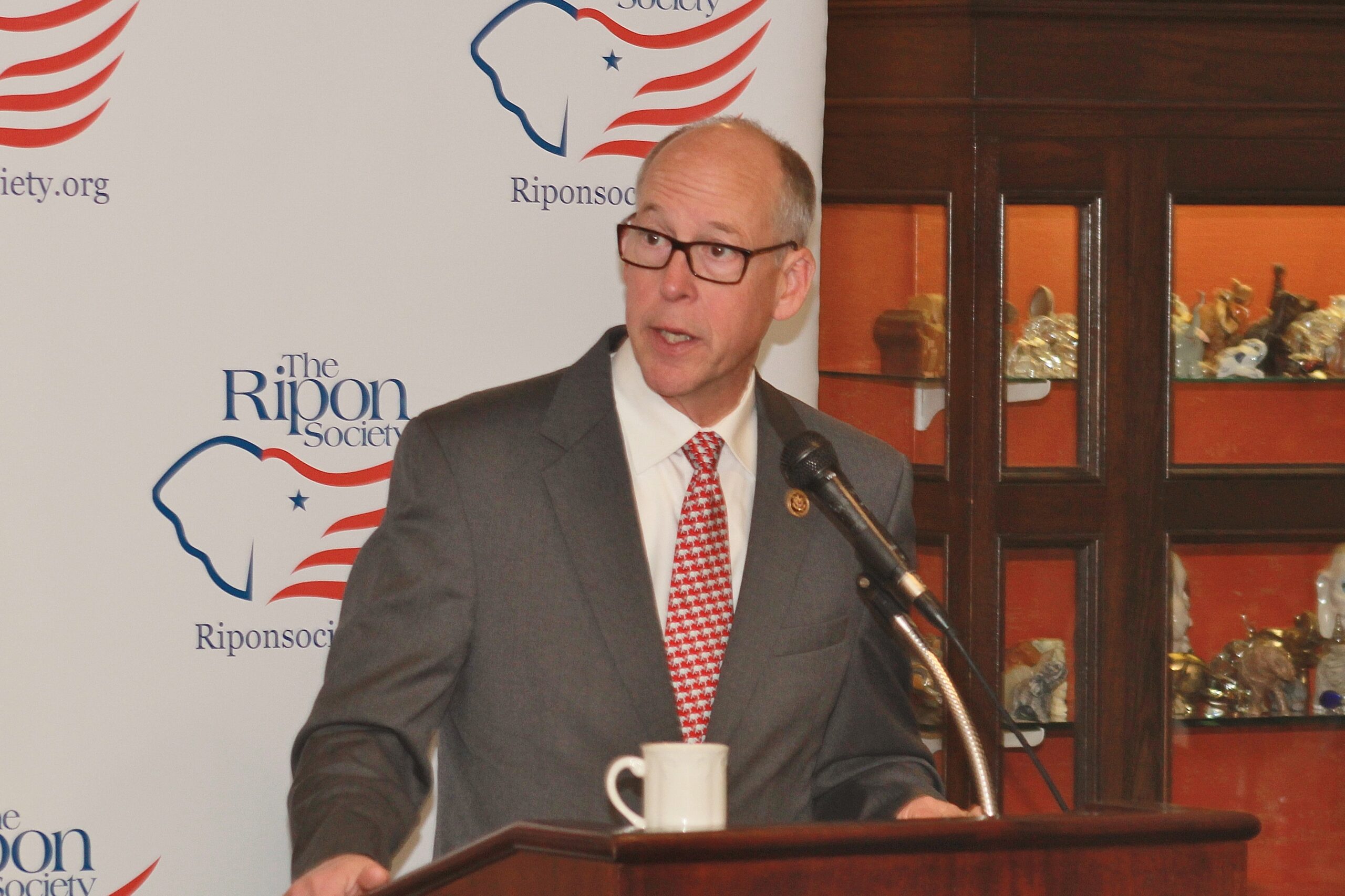
WASHINGTON, DC – The Ripon Society hosted a breakfast discussion yesterday morning with U.S. Rep. Greg Walden (OR-2) and four Members of the U.S. House of Representatives: Rep. Mike Coffman (CO-6); Rep. David Valadao (CA-21); Rep. Cresent Hardy (NV-4); and, Rep. Will Hurd (TX-23). The discussion was moderated by Walden, who talked about his role as Chairman of the National Republican Congressional Committee and then introduced each of the freshmen Members who then delivered brief remarks of their own.
Chairman Walden opened Wednesday’s discussion by noting his committee’s election strategy going into next year’s campaign season by first discussing some key data from the 2014 election.
“There are 26 House Republicans in districts that Barack Obama carried,” Walden stated. “There are only five Democrats left in districts that Mitt Romney carried. One of those is Kirkpatrick in Arizona who is not running again, and that is an open pickup opportunity. There are only two – hers and Collin Peterson’s seat – left that have Democrats in them today and where George Bush, John McCain, and Mitt Romney all won those districts. There were seven going into the last cycle, and we won five of those.
“There are two remaining, and they will be a huge priority for us to win because just like when we took out John Barrow, we should be able to hold it without much future investment. It’s getting it in the first place that will be a challenge. Those are obviously the districts that we will be focused on.
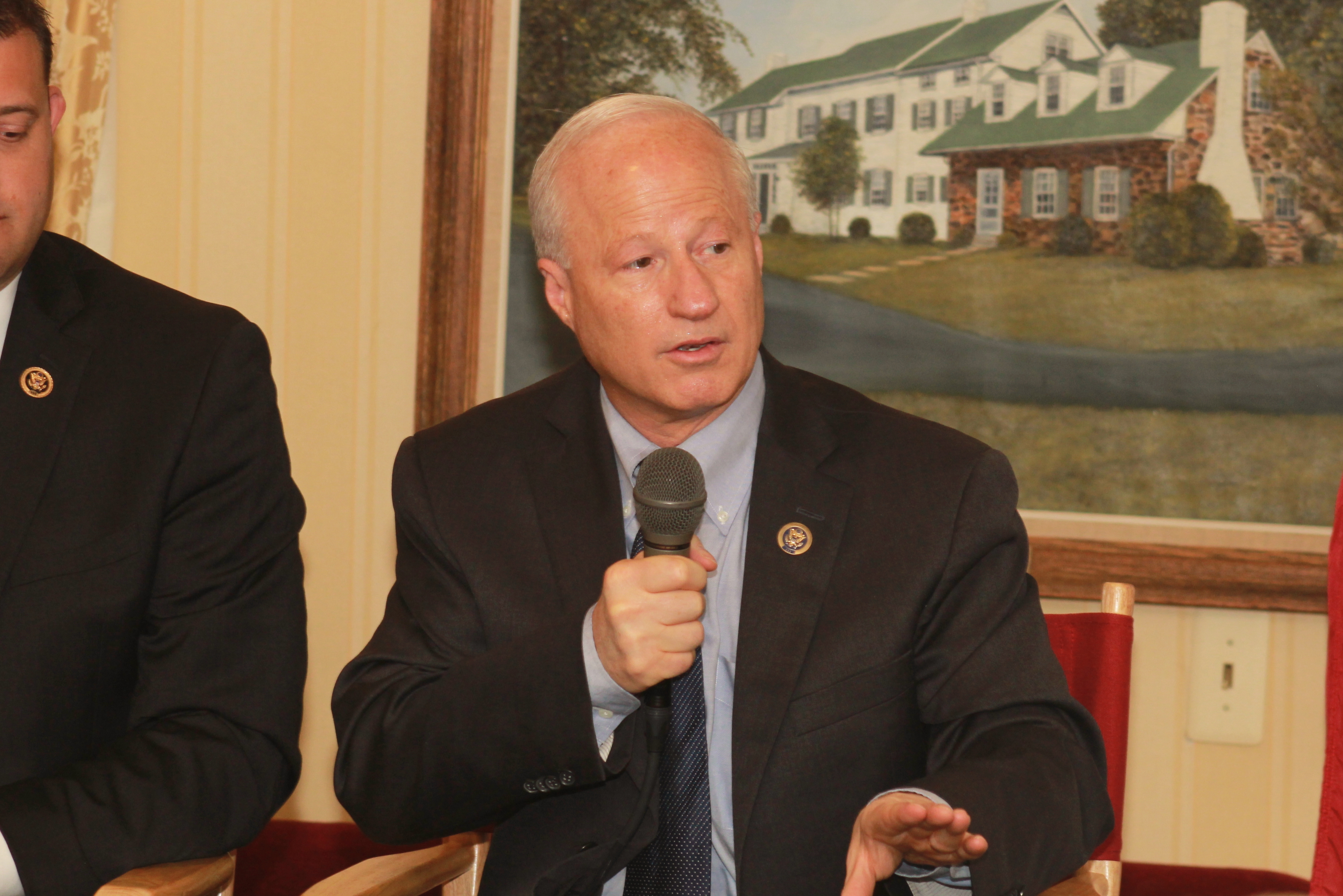
“As we look at the turnout model for 2016, it is different than 2014. We’re well aware of that and have been doing a lot of research, a lot of studying, a lot of testing, and a lot of data enhancement and improvement to understand fully what the electorate can look like, what it will look like, and how we can affect that. We anticipate that this electorate will be eight percent more Independent and Republicans would lose five times as much of a share of the electorate as Democrats. We know that going in.
“It will be four percent less white, and the Hispanic share will increase by 1.28 percent, we estimate. Turnout of 18-34 year-olds will increase by seven percent over what it was in 2014. Men will see their share increase by 1.5 percent while women voters will actually go down as a percentage of the electorate by 1.5 percent. That’s sort of the overall changing electorate view.”
Following another historically successful election cycle last year, Congressman Walden was unanimously reelected by the House Republicans to serve his second term as Chair of the NRCC. In his remarks, he also addressed the current field of Republican presidential nominees and warned against being misguided by such early polling results and the importance of 30 select Congressional districts.
“People ask me all of the time ‘so how is it going to work if – name your candidate – is the nominee,’” he said. “First of all, it’s too early to tell. As Charlie Cook famously said, ‘eight years ago I declared I would win the Tour de France before Rudy Giuliani won the Republican presidential nomination even though he was sitting atop the polls.’
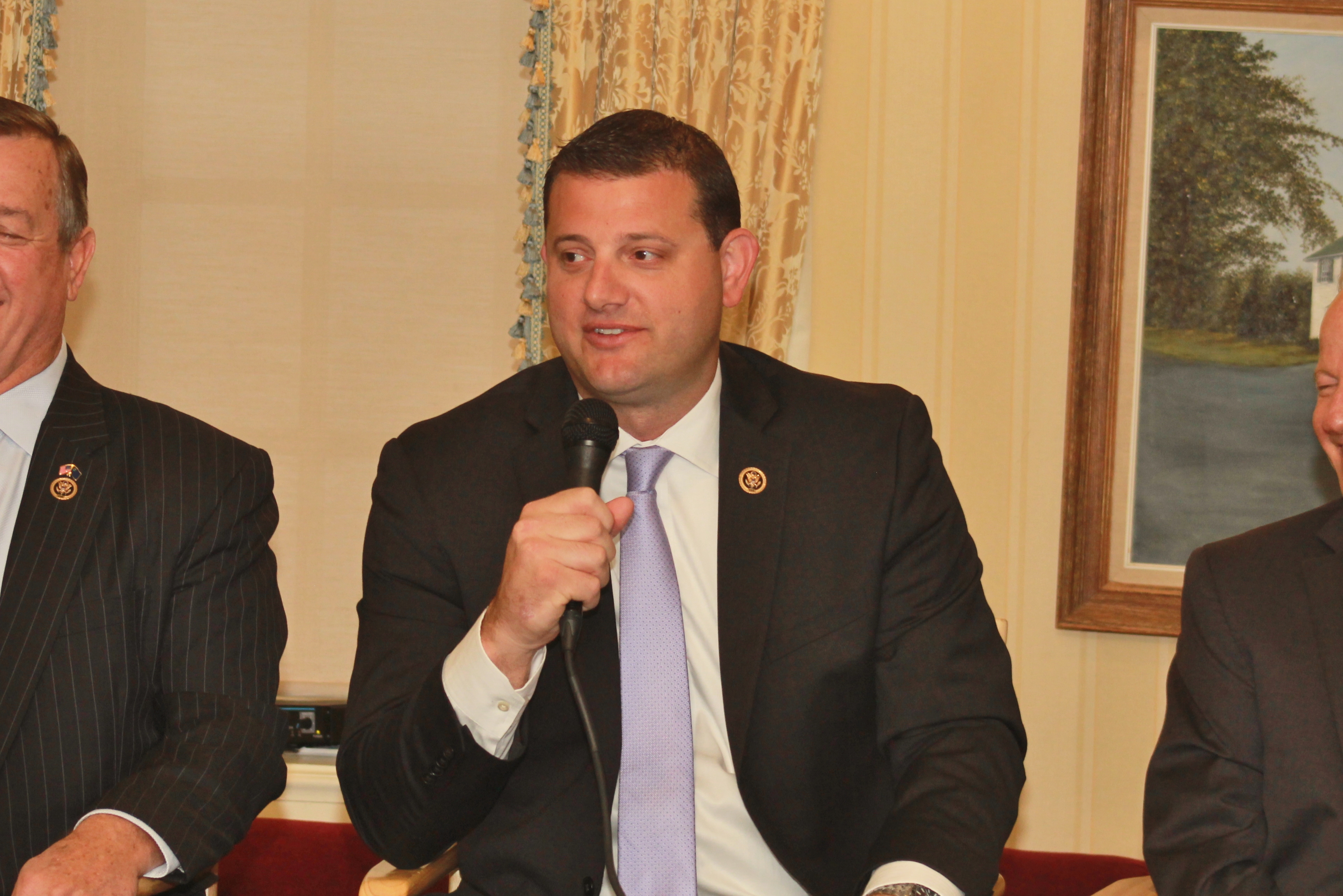
“With Donald Trump and Ben Carson in mind, I’m thinking such a proclamation might be in order again. My point is, in the previous election cycles, the eventual nominee has not been the front runner at this point in the cycle. In 2007, McCain fell behind in the polls and in fundraising and looked like he was about out of the picture. In 2012, Herman Cain, Rick Santorum, and Newt Gingrich all seemed to be the frontrunners at some point during 2011 and Mitt Romney ended up being our nominee.
“On a side note, in 2012, Mitt Romney won 226 congressional districts but lost the popular vote by five million. The point here is, how we win our districts is different than how you win a national campaign. In a national campaign, it is won in 30 House districts. It is approximately 30 House seats that will ultimately determine who the next president of the United States is. If you think about Ohio, Nevada, and Virginia – it gets down to crossover swing seats. We know which ones those are and we’re already very much engaged in that action.”
Walden was also adamant that national security and economic issues will be favorable for Republicans next year.
“National security is bumping up as the number one issue in the country,” the Oregon lawmaker stated. “People feel threatened and they feel that the Obama Administration foreign policy has been something worse than a disaster. The other issue is the economy and how that affects different groups of voters – principally women and young voters. Interestingly enough, we actually won the vote of 18-34 year-olds in the last cycle. We won that vote in our House races. We have every reason to believe that we will win it again and we have ways to do that.”
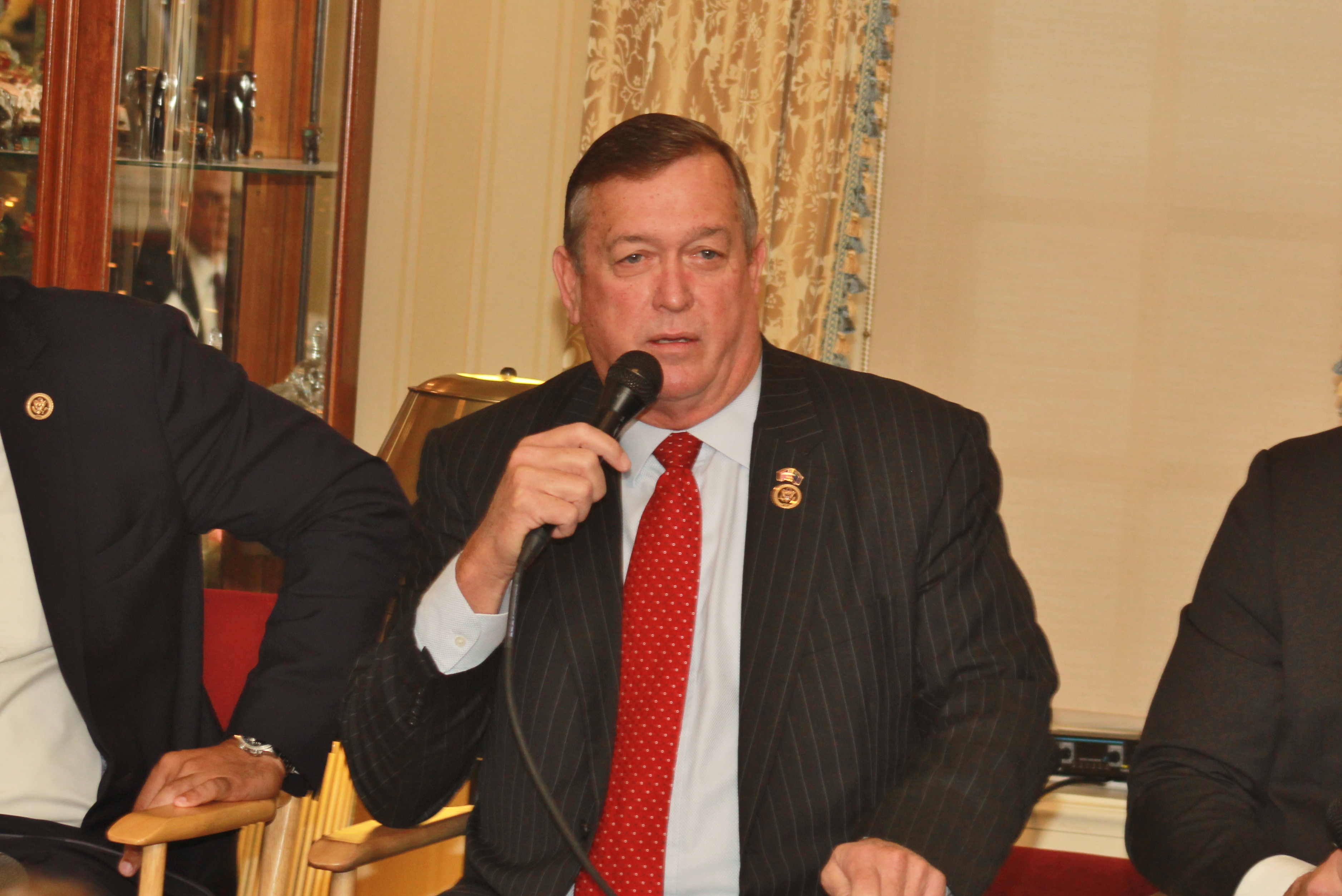
The second lawmaker to address the group was Congressman Mike Coffman (CO-6). In his comments, he discussed the importance of old school, grassroots campaigning, and why a campaign effort targeting non-traditional GOP voters is critical to the party’s success. It would be a theme echoed by all four Western lawmakers.
“I have one of the most diverse districts in the United States,” Coffman stated. “It has a very large Hispanic population of 20 percent. It has a very large Asian immigrant population and a very large African immigrant population. I probably have the third largest community of Ethiopians in the United States, not to mention the other African immigrant communities within my district.
“I did the first Spanish-language debate in the history of the state of Colorado. I’ve got a very significant interview coming up on Spanish-language radio on December 14th. They say that 99 percent of life is just showing up. And I think when Republicans show up in these communities, we make a tremendous difference.”
Congressman David Valadao (CA-21) spoke next.
“The district I represent is unique. In fact, more than 75percent of my constituents identify as Latino,” said Valadao. “I have had strong support from voters in my District, regardless of ethnicity, because I reach out to all my constituents. As a Republican in a swing district, I believe elected officials who focus on the issues impacting their constituents, and not on politics, will continue to receive support from voters.”
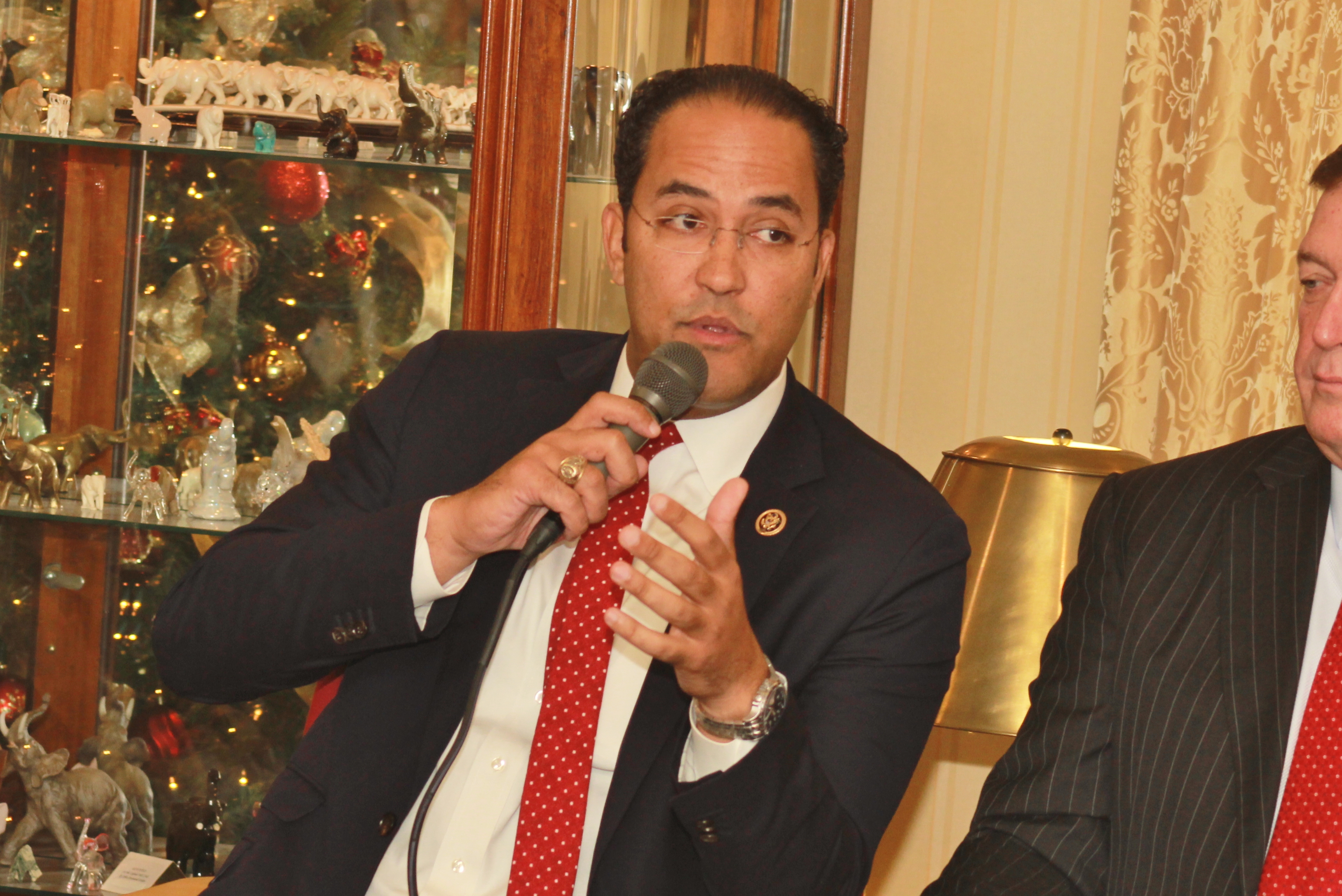
Congressman Cresent Hardy (NV-4) took time to discuss his district’s demographics and why he’s willing to “go where most Republicans wouldn’t go.”
“I come from a diverse district,” stated Hardy. “It’s a widespread urban area along with rural areas. I think grassroots politics is still a good, solid strategy here and I continue to work hard in my district for that reason. I go where most Republicans wouldn’t go and meet with people to discuss the issues that are concerning to Democrats, Independents, Libertarians, and Republicans alike. I think that it’s our responsibility to represent our district like this.”
To view the opening remarks of Chairman Walden before The Ripon Society’s breakfast discussion, please click on the link below:
The Ripon Society is a public policy organization that was founded in 1962 and takes its name from the town where the Republican Party was born in 1854 – Ripon, Wisconsin. One of the main goals of The Ripon Society is to promote the ideas and principles that have made America great and contributed to the GOP’s success. These ideas include keeping our nation secure, keeping taxes low and having a federal government that is smaller, smarter and more accountable to the people.



